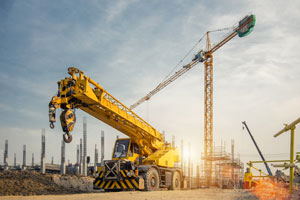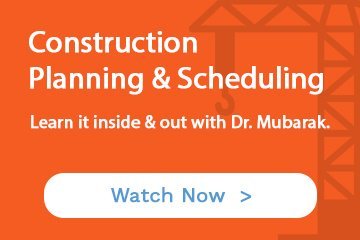How many times have you looked into buying or renting a tool or equipment? Still figuring out if there is ever a right or wrong decision?
Well, there isn’t.
Today’s construction industry is so competitive that even the slightest additional cost can knock you off from that top bidder spot. Construction tools and equipment are buy and/or rent in certain instances, but the final decision depends on how frequent and how you can prorate some of these costs.
Renting or buying construction tools, what should you do?
Let’s look at some interesting point of views for you to consider.
Buying Benefits
It is a general rule of thumb that if you are using a tool or equipment more that 65% of the time, then you should consider buying it.
Buying a tool or equipment is a decision that ultimately affects your immediate opportunities of providing the lower price to your customers. If you are purchasing the equipment, think about the tax benefits it can provide and how the cost is amortized or depreciated using a straight line or double declining balance.
Owned equipment or tools are considered assets adding to your balance sheet and in during harsh time can always be sold. If you own the equipment, it is easier to dictate the pace and determine when to use and for how long but remember to account for its transportation costs.
Ultimately, there is an approach of conjoint ownership, when different companies join efforts when purchasing larger equipment, so it can be accessible to any of the parties and the costs gets distributed into many shareholders. Normally loan payments are only a fraction of rental rates, as these last one includes fuel, maintenance, transportation and other costs.
Renting Benefits
When you’re not sure, start by renting the tools needed for the job as it can provide information as to the cost and maintenance to calculate a payback period. The renting experience is also used to determine how efficient your production is when the tools is used constantly instead of being an option. Using a rental construction tool, the cost will normally be baked in and pass to the customer as indirects or overhead costs during the project execution.
Rental expenses are considered business expenses and deducted on a yearly basis. Renting is beneficial when you do not have enough funds to do an initial investment and by renting it you will have access to the latest line of equipment and you won’t need to carry the cost of insurance plus maintenance.
Renting or Buying Equipment
If we are analyzing heavy equipment, then it should be looked at somewhat differently. Lower interest rates, tax incentives and other incentives (money) is making the purchasing decision more attractive than ever. However, be aware that the maintenance and storage costs can significantly affect your cash flow when the equipment is not used effectively.
There is also the option of renting your owned equipment, but you will need to make sure the right insurances are in place and there is enough money to cover operational costs. Larger equipment requires additional analysis during the rent or buy construction equipment process and different models and options are to be considered. Be aware that not all equipment maintains the same value over the years, so do some research and compare prices of used equipment before purchasing.
On top of those items, consider the transportation costs and permits required to move the equipment form one place to another and consider if the storage area is to be affected by road postings. If your equipment is rented within 100 miles, then there are minimum costs associated to it, but when the equipment is used at remote locations, be sure to add costs of travel, maintenance, repairs and fuel in case it needs to be serviced.
When to Rent and When to Buy Construction Tools & Equipment
The bottom line to this question can be obtained after you evaluate the following facts:
- If you are using the equipment 22 consecutive days or 176 hours for more than 8 months a year, consider purchasing it.
- In case your tool is required by a speciality contractor that you are planning to use temporarily or if needed for a one-time project, then just rent it.
- Whenever a project or series of projects in your pipeline require the same tool over and over, buy it.
- Multipurpose tools such as generators, drills, rotary hammers, or equipment such as backhoes, diggers, or front wheel loaders, required constantly, buy them. Rental costs can quickly add up.
- If a Time & Materials type of contract and the project schedule is long enough that allows you to recover the cost over the project life cycle, then buy it.
- If your cash flow is not good enough or credit worthiness for your business is an issue, rent it.
- When availability is an issue, then buy it.
- Don’t have a fleet services department (for larger equipment), then simply rent it.
How do you go about acquiring your tools and equipment’s. Do you rent or buy? Start the discussion below in the comments.


